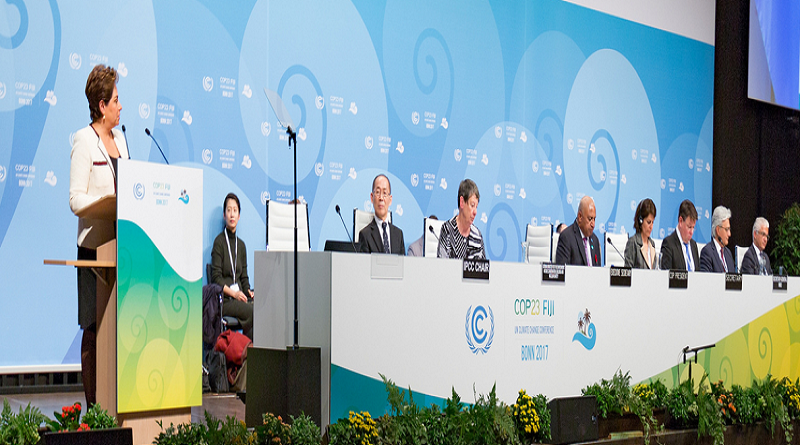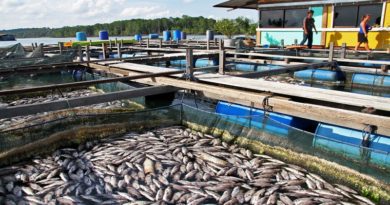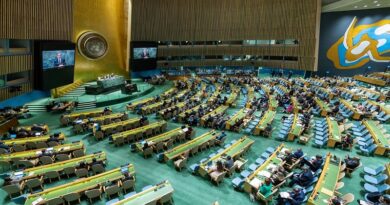Bonn climate conference becomes launch-pad for higher ambition
Nations agreed early Saturday November 18, 2017 to launch the next steps towards higher climate action ambition before 2020 at the close of the annual UN climate conference held in the German city of Bonn.
Backed by a wide range of positive announcements from governments, cities, states, regions, companies and civil society, delegates from over 190 countries agreed to a 12-month engagement focusing on ‘Where are we, where do we want to go and how do we get there?’
The ‘Talanoa Dialogue’, inspired by the Pacific concept of constructive discussion, debate and story-telling, will set the stage in Poland in 2018 for the revising upwards of national climate action plans needed to put the world on track to meet pre-2020 ambition and the long-term goals of the two-year old Paris Agreement.
The Paris Agreement’s central goal is keep the global average temperature rise below 2 Celsius and as close as possible to 1.5—the lower limit is deemed crucial for survival by many small islands and vulnerable countries.
Over one degree of this rise has already occurred since pre-industrial times. The current set of national climate action plans, known as NDCs, are still heading for a path towards 3 Celsius, possibly more.
Frank Bainimarama, President of the conference also known as ‘COP23’ and Prime Minister of Fiji, said: “I’m very pleased that COP23 has been such a success, especially given the challenge to the multilateral consensus for decisive climate action. We have done the job we were given to do, which is to advance the implementation guidelines of the Paris Agreement and prepare for more ambitious action in the Talanoa Dialogue of 2018.”
“There has been positive momentum all around us. And Fiji is especially gratified how the global community has embraced our concept of a Grand Coalition for greater ambition linking national governments with states and cities, civil society, the private sector and ordinary men and women around the world,” he said.
“We leave Bonn having notched up some notable achievements, including our Ocean Pathway, the historic agreement on agriculture and others on a Gender Action Plan and Indigenous People’s Platform. We have also secured more funding for climate adaptation and launched a global partnership to provide millions of climate-vulnerable people the world over with affordable access to insurance.”
“I want to warmly thank our hosts, the German Government and the UNFCCC, as well as the residents of Bonn. We brought our Fijian Bula Spirit to COP and it’s been wonderful how people responded. Vinaka vakalevu. Let’s all leave rededicating ourselves to more ambitious action on climate change by moving Further, Faster, Together in the year ahead,” said Mr. Bainimarama.
A report launched by the International Renewable Energy Agency during the conference has found that many countries now have higher renewable energy targets than are stated in their national climate action plans or NDCs – indicating that in some countries, at least in respect to green energy, higher ambition is already being locked in
A special scientific report, produced for the conference by Future Earth and the Earth League, says renewable energy expansion around the globe is doubling around every 5.5 years–consistent with the complete de-carbonization of the energy sector by mid-century
Patricia Espinosa, Executive Secretary of the UN Climate Change secretariat which hosted the conference with support from the Government of Germany, said: “COP23 in Bonn came against a backdrop of severe and unprecedented natural calamities that hit homes, families and economies in Asia, the Caribbean and the Americas – these reminded us of the urgency of our collective task.”
“The conference has, with the adoption of the Talanoa Dialogue, delivered a launch-pad that can take us to that next stage of higher ambition. It has also advanced the implementation guidelines of the Paris Agreement so that by 2018 it can truly support sustained international cooperation and national efforts to realize a more secure, prosperous and better world for all,” she said.
“But Bonn 2017 did more than that – it underlined that support for the Paris Agreement is strong and that the journey upon which the world has embarked is an unstoppable movement supported by all sectors of society, across all parts of the globe.” said Ms Espinosa.
With so many climate action pledges and initiatives, a further strong message from all sides at COP23 was the growing need to coordinate efforts across policy, planning and investment to ensure that every cent invested and every minute of work contributed results in a much greater impact and boosts ambition under the national climate plans.
Outcomes and Highlights of the 2017 UN Climate Conference
The COP23 President and the UN Climate Change Executive Secretary outlined some highlights from the 2017 UN climate conference as a result of the negotiations; the Marrakech Partnership for Global Climate Action and the myriad of High-Level and other events.
Long-term Finance – Countries welcomed progress but also urged greater efforts to deliver the agreed USD 100 Billion per year by 2020 for support to developing countries to take climate action
Adaptation Fund Exceeds 2017 Target – The target for funding this year was $80 million, but funding announcements including by Germany and Italy has exceed this by over $13 million taking the total to $93.3 million
Historic Breakthrough in Agriculture – there was an historic political breakthrough in respect to agriculture that may lead to a faster and more coordinated response by nations to address a sector that is the second biggest emitter after energy
The Government of Norway, the multinational company Unilever and other partners announced a $400 million fund to support more efficient agriculture, smallholder farmers and sustainable forest management
Gender Action Plan –The crucial role of women in combating climate change will be formally supported through the plan. This is important given that women tend to be especially vulnerable to climate change impacts and should not be excluded from decision-making regarding actions and solutions. The Plan aims to make women part of all climate change projects and decisions internationally and nationally
Local Communities and Indigenous People’s Platform – A political and practical achievement that aims to support the full and equal role of indigenous people in climate action while recognizing the responsibility of governments to respect the rights of indigenous peoples in these decisions
Launch of the Ocean Pathway Partnership – It aims, by 2020, to strengthen action and funding that links climate change action with healthy oceans including through the UN Climate Change process and via more explicit aims and ambitions in national climate action plans
Launch of Network of Pacific Island Journalists – Ten award-winning media from Fiji, Samoa; Solomon Islands; Papua New Guinea; Tonga and Vanuatu, attending the conference with funding from the Government of Germany and support from the Deutsche Welle Academy and UN Climate Change, announced the formation of a new association aimed at strengthening climate media reporting across the Pacific
InsuResilience Initiative announced a new Global Partnership and an additional $125 million from the Government of Germany to support its aim of providing affordable cover to 400 more million poor and vulnerable people by 2020
Launch of Fiji Clearing House for Risk Transfer – A new online platform using artificial intelligence to help vulnerable countries find affordable insurance and solutions to avoid climate risk.
The governments of Germany and the United Kingdom along with other partners announced $153 million to expand programs to fight climate change and deforestation in the Amazon
The European Investment Bank formally announced $75 million for a new $405 million investment programme by the Water Authority of Fiji to strengthen resilience of water distribution and wastewater treatment for close to 300,000 people living in and around the capital Suva.
America’s Pledge brings together private and public sector leaders to ensure the US remains a global leader in reducing emissions and delivers the country’s climate goals under the Paris Agreement
The Green Climate Fund and the European Bank for Reconstruction and Development announced over $37 million of GCF grant financing to the $243 million Saïss Water Conservation Project to assist Morocco with more resilient agriculture
Powering Past Coal Alliance brings together 25 countries, states and regions to accelerate the rapid phase-out of coal and support affected workers and communities to make the transition.
The UN Development Programe, Germany, Spain and EU launched a EUR 42 million NDC Support Programme to assist countries deliver on the Paris Agreement
The existing NDC Partnership announced the establishment of a new regional hub to support implementation of national climate action plans or NDCs in the Pacific
13 countries and the International Energy Agency announced EUR 30 million to the “IEA Clean Energy Transitions Programme” to support clean energy transitions around the world
Launch of New Small Island Developing State (SIDS) Health initiative – The World Health Organization, in collaboration with the UN Climate Change secretariat and Fijian COP23 Presidency, announced a special initiative to protect people living in SIDS from the health impacts of climate change. Its goal is, by 2030, to triple the levels of international financial support to climate and health in those countries
The Bonn-Fiji Commitment was made – a commitment to action adopted by over 300 local and regional leaders to deliver the Paris Agreement at all levels, supported with 20 initiatives including those focusing on Africa, islands, post-industrial cities and climate reporting standards.




